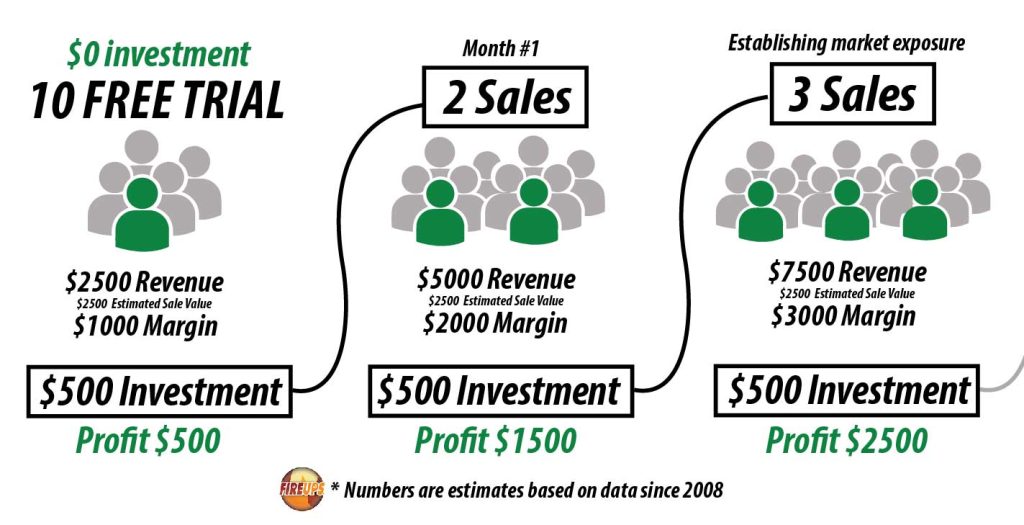Countertop marketing strategy and infrastructure,
We have the Brands! We bring the customers!
You Close the Sale!
Start (or restart) a countertop business Phase #1
- Some data points for a countertop business plan
- You need proper licensing and insurance for your location based on the services that you provide.
- You need a phone and a car and the sales ability to sell custom countertops.
- You will need 2 outsourced fabricator and installer(s) that you will contract to do the work.
This a first model, the margins are tight and you are reliant on the services of the fabricators and installers. We need to build up sales to begin to control this process with future phases.
If you already have a countertop business you can skip to phase 2 or 3.

We will make some assumptions for this revenue model
- The target sales price will be $40/SF all in
- The average kitchen is 50 SF
- Fabrication (out sourced) costs $12/sf
- Installation (out sourced) costs $8/sf
- Material costs start $8/sf
Hard costs are $28/SF leaving $12/SF for profit and marketing
- The average sales invoice is $2000
- of this $1400 went to pay for subs and material
- leaving $600 for profit and marketing.
Example: You (one person) have the potential to sell & manage 20 jobs per month.
- Sales = $40,000
- Subs & material = $28,000
- Net revenue & marketing = $12,000
Estimated marketing costs of 7% of sales ($2800) leaves you with a net profit of $9200 per month. Not to shabby!
$480,000 in Annual Sales
Potential annual net: $110,400
-- from this you may need to calculate operating and licensing expenses.
Things that are right offs etc. to calculate actual net profit.
This does not scale as a one man show.. Maybe you can sell and manage 40 jobs per month with really good subs but you are putting your brand at risk by not managing the customer experience - lets move to phase #2 and scale this business!
Don't get stung by the commercial strategy:
Commercials business is business and should not be ignored but you need to be careful. I have seen commercial deals put startup and long standing companies out of business. This happens because margins are reduced for larger more consistent work. The issue arises when you receive a deposit for the material and you are slow paid for work over the next 6-12 months if your lucky. This will attack your cash flow and make it difficult to make payroll or other aspects of your business. The multi million dollar company does not care that you can't pay your 2-10 employees because they can't write a check. If you are going to take on a commercial project be sure that it is not more that 50% of your work load. If it is you could find your business closing up shop.
I have a partner that took on such a project cashed $225,000 to begin work on a commercial project. Feels good cashing a check that size. Like winning the lottery. Within 60 days material is purchased work has begun on the project and the bank account is looking pretty slim. See the $225,000 is 50% of the job, this usually will cover some labor, consumables and materials. In order to keep things moving we need more cash. The commercial contractors must have all the jobs finished and singed off on by many people before money can be released. In the meantime you either need to find a way to generate more work to cover payroll. Learn the commercial side by taking on smaller projects and building up. Your accounts receivables should never exceed a months sales is a good rule.
See Start a countertop business Phase 2
If you are ready to get to work call me 877 877 1916
* this strategy is an example. These numbers represent general strategies are are not a commitment. The specifics of your business plan will be detailed by you.





Comments are closed